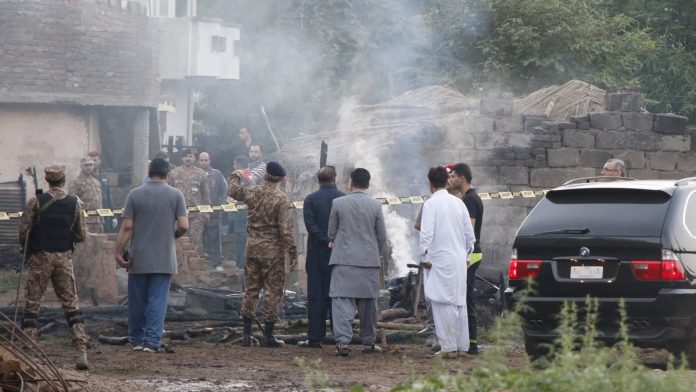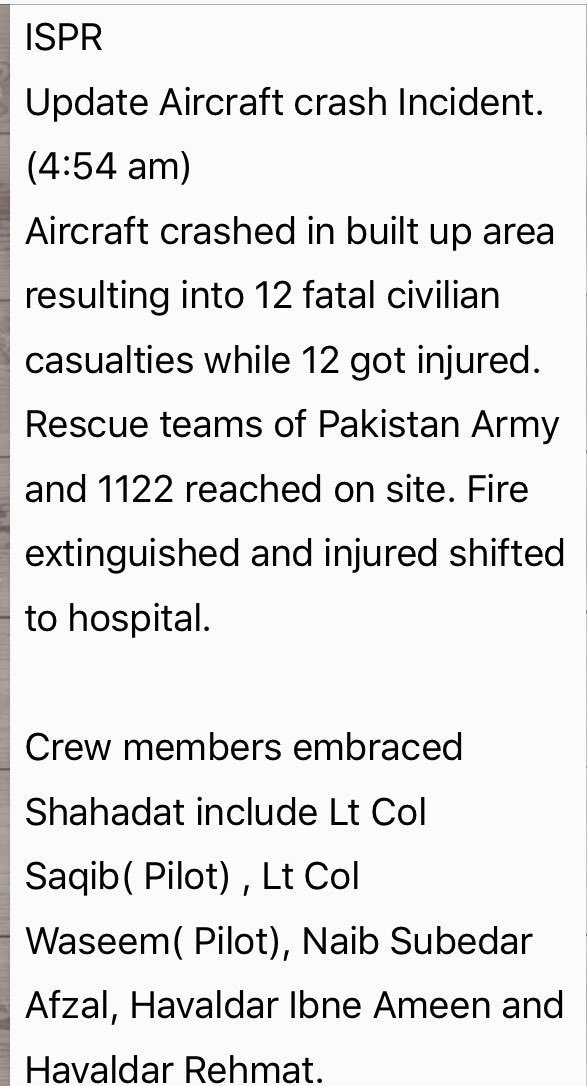M WAQAR..... "A man's ethical behavior should be based effectually on sympathy, education, and social ties; no religious basis is necessary.Man would indeed be in a poor way if he had to be restrained by fear of punishment and hope of reward after death." --Albert Einstein !!! NEWS,ARTICLES,EDITORIALS,MUSIC... Ze chi pe mayeen yum da agha pukhtunistan de.....(Liberal,Progressive,Secular World.)''Secularism is not against religion; it is the message of humanity.'' تل ده وی پثتونستآن
Tuesday, July 30, 2019
Pakistan has a domestic abuse problem – but there’s a way to turn the outrage into action
Saba Karim Khan
After a TV host in Pakistan made light of the issue days after the wife of Pakistani actor Mohsin Abbas Haider accused him of violence, it’s clear a cultural shift is needed to de-normalise this behaviour.
Several years ago, at my uncle’s funeral, a distant relative next to me, whispered: “Good riddance. His poor wife is finally free.” Struck by newly palpable grief, her words choked me. How could someone be callous enough to curse the dead even before they were buried? My uncle – as it turned out – was a chronic wife-beater and my aunt, a brave yet convention-bound woman.
More than a decade later, as #saynotodomesticviolence gains virality in Pakistan, I recalled those words. Should my aunt have confided in someone? Is there something we had missed? Would I offer newfound advice to my daughters? But first, what even comprises domestic violence? Is the “see what you made me do” alibi legitimate? And beyond the blame-game, how do we fix things? These questions are complex, unsettling, and Pakistani society has mostly shirked them.
Back then, the words at the funeral offered relief – the knowledge that for my aunt, the worst was finally over. Today, I realise that a trusted member of our extended family, intimidating his partner, signalled a graver dilemma: that domestic violence is normalised and the price for whistle-blowing, often too rancorous for victims to speak up.
As I sifted through my university years and entered the job market, stories from workmates, house-help and one time even a stranger on a flight, surfaced, signalling how domestic violence permeates society in a privileged, agnostic fashion in Pakistan, cutting across race, class and religion. The elderly lady who cooks in my mother’s home and the fashion celebrity earning a six-figure salary are both susceptible to abuse. Accounts ranged from evident coercion to invisible bruises, both equally harrowing.
In 2018, a United Nations report cut to the bottom-line: The most dangerous place for a woman is her home. According to the World Bank, almost one in three married Pakistani women report facing physical violence. So every time a victim is shamed for speaking up, or a court refuses to convict a perpetrator, or a TV show jokes about domestic violence, we are lowering the stakes and emboldening home-grown terrorism, literally.
Commonly understood reasons for domestic violence often fuel confusion: a stroke of bad luck; wrong place, wrong time; substance abuse; financial stress; laudable possessiveness; a sex game gone wrong; a man hard-wired to hurt; and the false guarantee that with time it will vanish. These myths must be dismantled. Toxic masculinity, cultivated in male upbringing across South Asia, is largely responsible for normalising, even applauding an imbalance of power between the sexes. By privileging typically “masculine” traits of aggression, control and a natural killer instinct, domestic violence offers an ego-boost, buttressing the belief that it is, after all, a man’s world. When this gets augmented with society’s blind-eye, abuse blossoms; by remaining tongue-tied, we are all complicit.
However, before judging victims for suffering, we must examine the cost of speaking up. From the outside, silence appears synonymous with cowardice but this couldn’t be farther from the truth. Often, victims are rippled by prospects of shame, fatigued with fear, yet wondering when to take the plunge. They are planning a careful exit, calculating risks, devising strategies that don’t place their children in jeopardy – none of it is simple, especially not in Pakistan – where even affluent women are labelled troublemakers for casting the die against men.
A year ago, an ex-colleague broke down mid-conversation at our dining-table – her husband would throw furniture at her in front of their six-year-old son and had recently begun choking her during role-play. Her cry was a water-shed; it stoked within me, the deepest revulsion, but I disallowed the fury to curdle into bitterness. It was an invitation to reflect on how to make the leap from outrage to action.
I realise that Pakistan needs its own revolution to stir things up but how might such a movement be ignited? The answer can be found via a two-pronged approach.
First, domestic violence must occupy a higher seat on every agenda: global, national, political and personal. Words come cheap so instead of what we’re used to, from our partners to the president, practical, life-saving solutions must emerge – policies, helplines, accountability bureaus, rapid court case resolutions, therapy units, funding for shelters. Only then can the benefits of unsilencing outweigh the costs. But foremost, what must accompany curative measures is conversation – a cultural shift that de-normalises domestic violence. So that mothers stop admiring sons for abusing wives because they suffered similarly or because “she must have asked for it”. So that we stop relying on post market failure fixes but instead, offer proactive support, which makes perpetrators rethink violent acts before they occur.
When I look back, in an ideal world, my advice to my aunt and colleague would’ve been: “Don’t walk, run”. Nothing about our world, though, is ideal. So, I’ve made their stories come alive to show that domestic violence is non-negotiable, that nothing about abuse is funny and that all of us are responsible to pick up the pieces. Only with collaborative will can we hope for bells to chime and ring in change, for a world where no one has to wait for a partner’s death to set themselves free.
Al Qaeda still resilient, closely works with Pakistani LeT, Afghani Haqqani Network: UN
YOSHITA SINGH
https://theprint.in/world/al-qaeda-still-resilient-closely-works-with-pakistani-let-afghani-haqqani-network-un/269831/
A UN report said al Qaeda still considers Afghanistan a safe haven but the health of its leadership was uncertain. It also said the Islamic State remains much stronger than al Qaeda.
United Nations: Al Qaeda “remains resilient” and continues to cooperate closely with Pakistan-based terror outfits like Lashkar-e-Taiba (LeT) and the Haqqani Network, but the health of its leader Aiman Muhammed al-Zawahiri and how the succession will work are in doubt, according to a UN report.
The 24th report of the Analytical Support and Sanctions Monitoring Team was submitted to the UN Security Council Al-Qaeda Sanctions Committee here this month.
The sanctions monitoring team submits independent reports every six months to the Security Council on the Islamic State, al Qaeda and associated individuals, groups, undertakings and entities.Al Qaeda remains resilient, although the health and longevity of its leader, Aiman Muhammed Rabi al-Zawahiri, and how the succession will work are in doubt, it said.Al Qaeda considers Afghanistan a continuing safe haven for its leadership, relying on its long-standing and strong relationship with the Taliban, it said.
Under Taliban patronage, al Qaeda is keen to strengthen its presence in Badakhshan Province, in particular in the Shighnan area bordering Tajikistan, as well as in Barmal, in Paktika Province, it added.
“Al Qaeda continues to cooperate closely with Lashkar-e-Taiba and the Haqqani Network. Al Qaeda members continue to function routinely as military and religious instructors for the Taliban, the report said.
It further noted that the Islamic State of Iraq and Levant (ISIL) is reported to be moving towards a hub-and-spoke network in its remote provinces, a logical extension of the dispersed, delegated leadership approach.Better established affiliates are taking on elements of responsibility for lesser ones, channelling funds and assisting with propaganda. Over time, this may have the effect of regionalising the agendas of these networks,” the report said.This has already happened in the case of al Qaeda, which has long embedded itself in local issues and politics, bringing the group some successes but also some problems, as in Idlib, it stated.Further, groups aligned with al Qaeda are stronger than their ISIL counterparts in Idlib, Syrian Arab Republic, Yemen, Somalia and much of West Africa. The largest concentrations of active foreign terrorist fighters are in Idlib and Afghanistan, the majority of whom are aligned with Al-Qaeda.
The report, however, noted that ISIL remains much stronger than Al-Qaeda in terms of finances, media profile, current combat experience and terrorist expertise and remains the more immediate threat to global security.
It also stressed that the ability of local authorities to cope with terrorist challenges in Afghanistan, Libya and Somalia remains limited.
Referring to the Easter Sunday attacks in Sri Lanka that killed 258 people, the report said that despite the claim of responsibility by ISIL, member state investigations revealed that the ISIL core did not direct or facilitate the attacks, nor did it know about them in advance.”
“It was a locally instigated and led attack inspired by ISIL ideology. The bombings aimed to boost the global image of ISIL after its military defeat in Iraq and the Syrian Arab Republic,” it said.
Regional Member States expressed concern about dynamics in the region, in particular in Sri Lanka, southern India and the Maldives, that could contribute to internal threats. Since 2013, approximately 170 Maldivians have travelled to Iraq and the Syrian Arab Republic, and more than 70 have unsuccessfully attempted to travel, it said.
The report noted that as ISIL continues its evolution from a pseudo-state to a global network inspiring and directing terrorism, it may aim to build platforms for operations in areas in which it has not been active before.
The Easter Sunday attacks may serve as a blueprint for future ISIL terrorism in other unexpected locations. The return of foreign terrorist fighters to their home countries from Iraq and the Syrian Arab Republic may combine with indigenous radicalization in South Asia or elsewhere.
The Lanka attacks show the “continuing appeal of ISIL propaganda and the risk that indigenous cells may incubate in unexpected locations and generate a significant terrorist capability.
“These and other ISIL attacks on places of worship, alongside the attacks in Christchurch in New Zealand in March offer a troubling narrative of escalating interfaith conflict, it said. The report also noted that outside the core conflict zone, ISIL and Al-Qaeda are both contending for dominance and international relevance. Some Member States describe the existence of a number of local conflict zones, each of which has its own gravitational pull, drawing foreign terrorist fighters who either come from the region or have ethnic or linguistic ties to it,” it said. Afghanistan remains the most established of these, and concerns remain about the short and long-term threats posed by ISIL and Al-Qaeda-aligned groups and foreign terrorist fighters who have established themselves on Afghan territory, the report said. There are also growing concerns about West Africa and the Sahel, where ISIL and al Qaeda are both active and deconflict with each other in favour of destabilizing the more fragile regional States.
https://theprint.in/world/al-qaeda-still-resilient-closely-works-with-pakistani-let-afghani-haqqani-network-un/269831/
Pakistani military plane that crashed was used for surveillance after Balakot strikes
AMRITA NAYAK DUTTA
Pakistan military's media wing draws flak for not naming civilian victims and for referring to killed soldiers as martyrs.
The aircraft that crashed in Pakistan Tuesday killing 18 people, including five military personnel, was a surveillance aircraft that the country’s army deployed to maintain a vigil on Indian military movement — both in air and land — following the Balakot strikes, defence sources told ThePrint.
The crashed aircraft was a King Air 350 turboprop of the Pakistan Army Aviation Corps and was inducted for surveillance around 2012.
The accident killed 18 people, including two pilots and three military personnel, and injured 12 others when the aircraft went down in a residential area in the garrison city of Rawalpindi early Tuesday.
Pak army statement draws flak
A Pakistan Inter-Services Public Relations (ISPR) statement said the two pilots and three military personnel killed had embraced “Shahadat” or martyrdom. The statement also mentioned that two high-ranking officials in the Pakistani Army were among the dead.
It, however, drew flak for leaving out the names of the 12 civilian casualties and for using the term Shahadat. The term martyr or martyrdom is generally used when a person is killed because of his religious or political beliefs.
The Indian military doesn’t officially use this term in case of soldier casualties and instead relies on killed in action.
Lahore-based journalist and rights activist Gul Bukhari tweeted, “The army crashes a plane in a residential area. And ISPR statement reads, “12 fatal civilian casualties… crew members embraced Shahadat. “And names each ‘shaheed’ and bloody civilians killed don’t merit being named.”
Plane was on a training mission
According to media reports, the Rawalpindi district commissioner Ali Randhawa said the incident occurred between 2:30 am and 2:40 am when the small military plane was on a training mission.
He added that the dead and injured were shifted to various hospitals of Rawalpindi, where paramedics said most of the victims were badly burnt. The cause of the crash is yet to be ascertained and the rescue operation was completed by the morning, according to authorities.
#QuettaBlast #Blast in #Pakistani city #Quetta kills five: police
Five people including two policemen were killed and 27 injured in a blast near a police station in southwestern Pakistani city of Quetta on Tuesday evening, a week after a similar blast that killed two people, police said.An explosive rigged motorcycle was detonated to target a police van parked outside the police station in the heart of Quetta’s busy shopping area, the city police chief said.
“Five people have been killed, including two policemen,” Abdul Razzaq Cheema, Quetta police chief told Reuters. Two women and a child are among the 27 injured in the blast, he added. In a similar blast last Tuesday two people were killed and 16 were injured when an explosive-rigged motorcycle went off outside a store in Quetta.
Violence in the Baluchistan province, which borders Afghanistan and Iran, has fueled concern about the security of investments, in particular an energy link planned to run from western China to Pakistan’s southern port of Gwadar.
https://www.reuters.com/article/us-pakistan-blast/blast-in-pakistani-city-quetta-kills-five-police-idUSKCN1UP22F
Subscribe to:
Comments (Atom)



